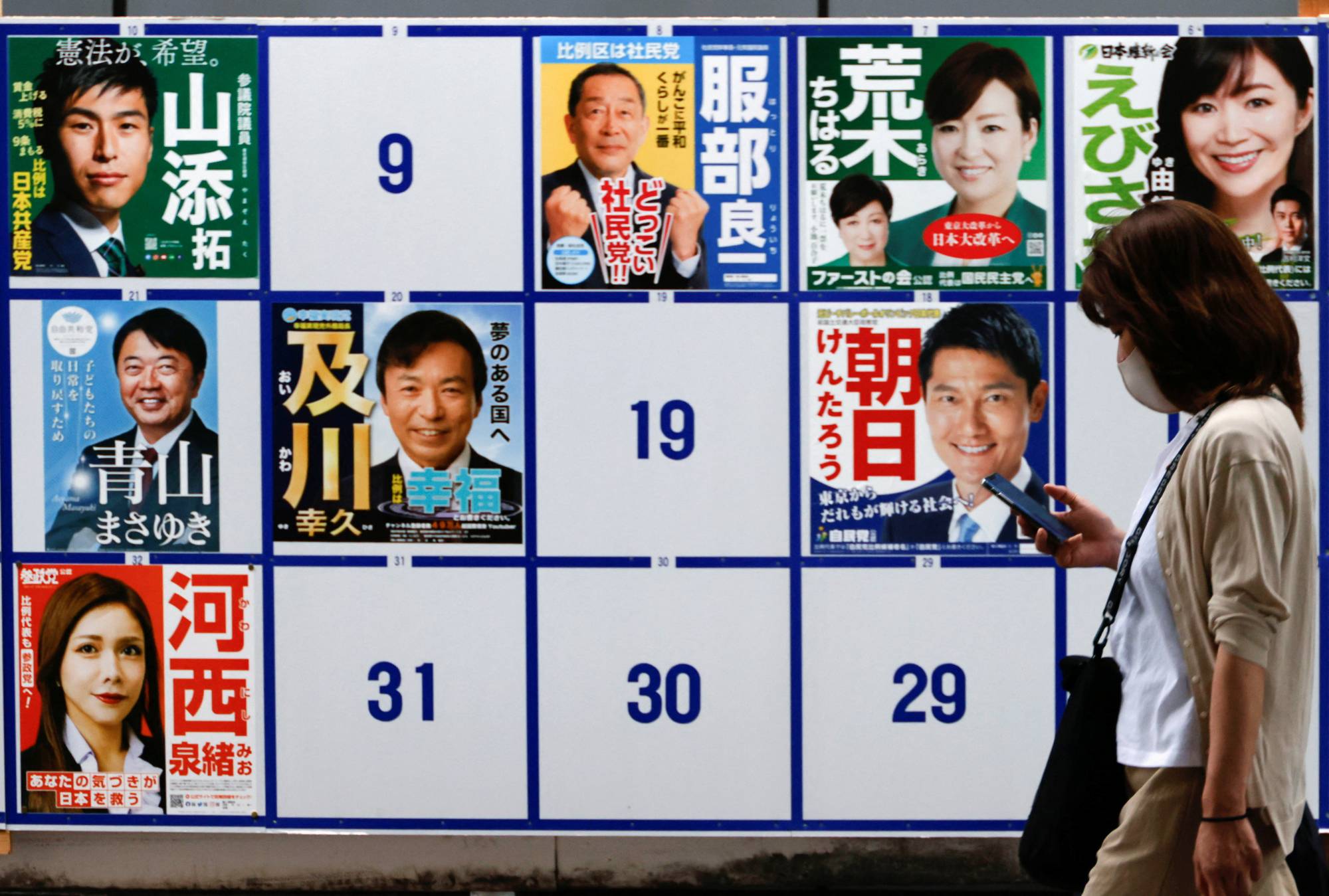A pop idol, volleyball player, actor, TV anchorperson, professional snowboarder and an author.
What do they all have in common? They are the former job titles of candidates for the Tokyo electoral district in Sunday's Upper House election, where 34 individuals are battling for one of the six seats available.
Renho, the former TV anchor and a previous deputy chief of the Constitutional Democratic Party of Japan (CDP), is probably the most popular candidate — she secured the most votes in Tokyo in the past two Upper House elections she ran in.


















With your current subscription plan you can comment on stories. However, before writing your first comment, please create a display name in the Profile section of your subscriber account page.